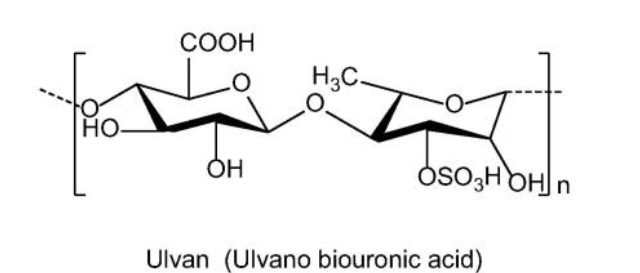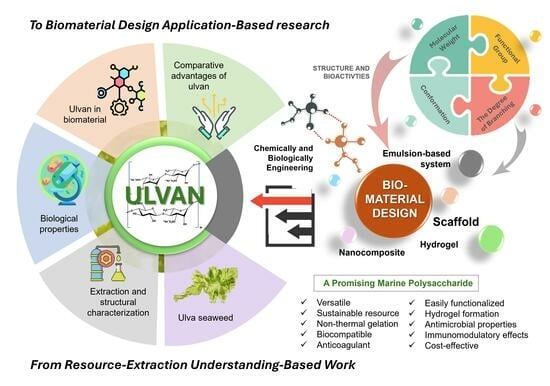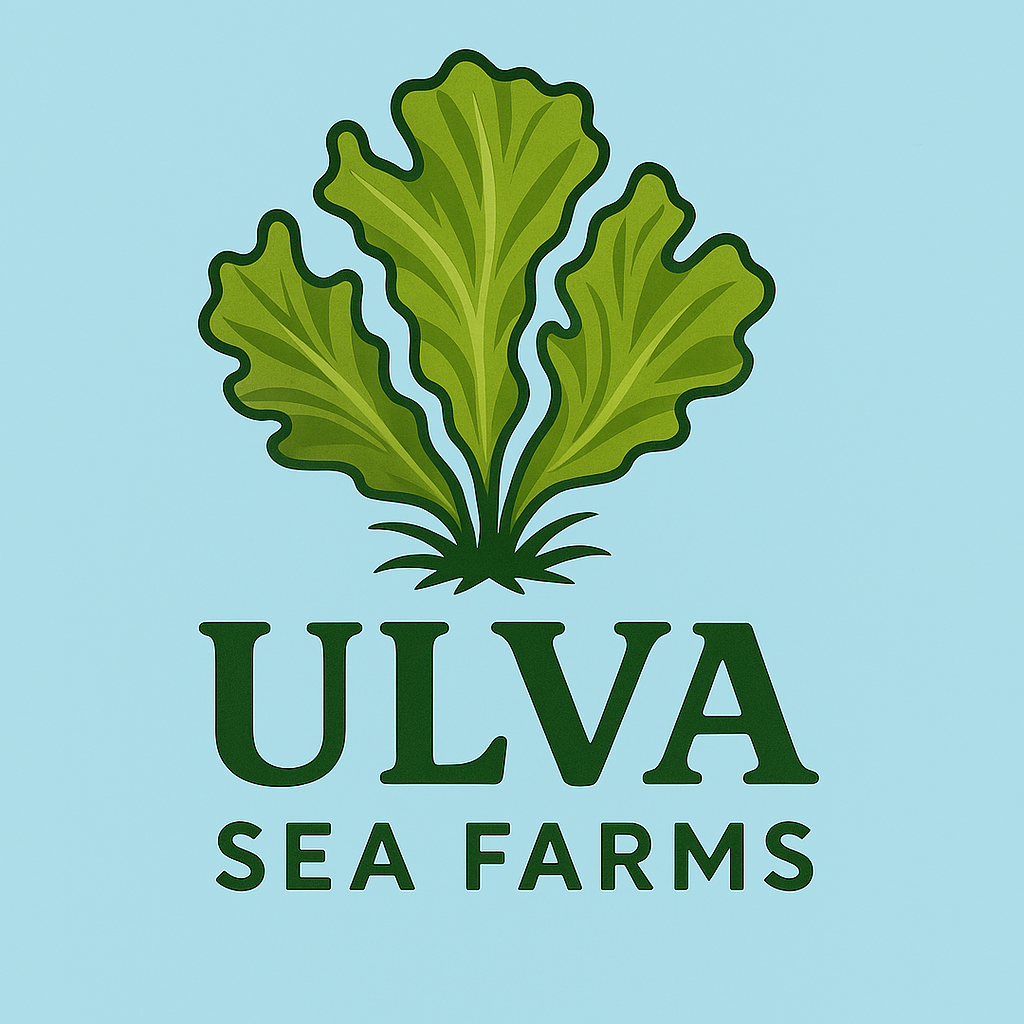Fighting Cancer with Ulvan Seaweed Extract.
Ulvan extract from Ulva seaweed can help in the fight against cancer.
Seaweed polysaccharides can promote the production of cancer
necrosis factor-α (TNF-α), nitric oxide (NO), interleukin-2 (IL-2) and
interferon-γ (IFN-γ) by activating macrophages (Mφ), T lymphocytes, and B
lymphocytes, and regulate the immune system, thus indirectly playing an
anti-cancer effect.
Traditional Chinese medicine seaweed mainly contains seaweed
polysaccharides, sodium alginate and seaweed polyphenols. In recent years,
experiments have confirmed that seaweed polysaccharides have immunomodulatory,
anti-cancer, antioxidant and anticoagulant activities, among which the
anti-cancer pharmacological activity is more prominent. It has a certain
therapeutic effect on lung cancer, liver cancer, esophageal cancer, breast
cancer, cervical cancer and other malignant cancers. Seaweed (Ulvan)
polysaccharide is one of the important active components of traditional Chinese
medicine seaweed. The well-known fucoidan, agarose, carrageenan, alginic acid,
ulvan, and fucoidan all belong to seaweed polysaccharide. Seaweed
polysaccharides play an anti-cancer effect by regulating immune mechanisms,
inducing apoptosis, blocking cell cycle progression, regulating transduction
signal pathways, inhibiting cancer cell invasion and metastasis, inhibiting
angiogenesis and antioxidant activity. Seaweed belongs to the same plant of
medicine and food. Taking more seaweed food in daily life can enhance the
immunity of the body and play a role in preventing the occurrence of cancer. At
present, chemotherapy is the main treatment for malignant cancers, but the
curative effect is limited by systemic toxicity and drug resistance of cancer
cells. Using Ulva and Ulvan has the
advantages of safety and little side effects, and can be used as an alternative
therapy for cancer treatment. It is time we took a closer look at Ulva and its anti-cancer effects and laid a foundation
for the further development and clinical application of seaweed
polysaccharides.
Cancer is the second-most commonly occurring disease that
threatens human health and life worldwide. By 2020, approximately 10 million
people worldwide will die of cancer, and it is estimated that the number of
cancer deaths will increase to approximately 13.1 million by 2030. The
occurrence of cancer is related to many factors, among which low immunity is an
important factor in the occurrence and development of cancer. In general, the
immune system of the body can recognize and eliminate “non-self” cells and
maintain the stability of the internal environment in the body. However, when
the immunity is low, or some cells acquire the ability to evade monitoring by
the immune system of the body, they survive, continue to grow, and eventually
form malignant tumors. This process includes three stages: immune clearance,
immune balance, and immune escape. Tumors can escape immune surveillance in the
body. It is essential to use immunotherapy to reverse immune escape and restore
the ability of the body to recognize and remove tumor cells.
Polysaccharides are natural immune regulators representing a
current research hotspot. Polysaccharides derived from seaweed Ulvan, and
alginate are widely used for the clinical treatment of tumours. Currently, the
anti-tumour effects of polysaccharides mainly include two aspects: the indirect
killing of tumor cells via the regulation of the immune system or direct
killing of tumour cells via the induction of differentiation or apoptosis in
tumour cells. Recently, however, it has been found that the direct anti-tumour activity of polysaccharides is relatively weak. Through immunomodulation, the
indirect killing of tumour cells has a better effect than the direct killing of
tumour cells.
In summary, polysaccharides have broad development and
application prospects in cancer prevention and treatment. It mainly facilitates
the indirect killing of tumour cells through immune regulation, thereby
inhibiting tumour growth.
Ultrasound-assisted extraction and seaweed
Ultrasound-assisted extraction (UAEE) is a non-conventional
method that combines enzymatic and ultrasound techniques to treat biomass,
particularly seaweed. This method is characterised by a high degree of
variability due to numerous factors affecting the ultrasonic and enzymatic
processes, such as wave frequency, amplitude, power, sonotrode tip area,
treated mass, treatment time, pH, solid-liquid ratio, and the application of
batch or continuous processes.
Recent studies have focused on designing and reporting
experiments and processes involving UAEE of seaweed, with a particular emphasis
on ultrasound-specific parameters like ultrasonic intensity and energy input.
These parameters are crucial for comparing different processes and identifying
the most promising ones for extracting valuable compounds from seaweed.
Optimised UAEE conditions have been shown to significantly
improve the extraction yields of phlorotannins, flavonoids, total phenolics,
and associated antioxidant activities from various brown seaweed species. The
highest recovery of total phenolics and total phlorotannins was obtained from
Fucus vesiculosus seaweed, while the lowest recovery was from Laminaria
digitata seaweed.
Overall, UAEE is an effective, low-cost, and eco-friendly
technique for recovering biologically active polyphenols from seaweed, offering
a greener alternative to traditional extraction methods.
Extracts from gut weed (scientific name Ulva intestinalis, a
green seaweed) that show antibiotic activity are mainly Ulvan (a sulfated
polysaccharide) and bioactive compounds such as polyphenols and fatty acids.
These substances have been studied for their ability to inhibit bacterial
growth, particularly against gram-positive bacteria.
For more information, please email us directly at ulvaseafarms@email.com




